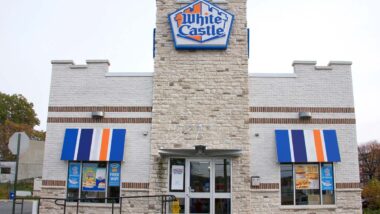Top Class Actions’s website and social media posts use affiliate links. If you make a purchase using such links, we may receive a commission, but it will not result in any additional charges to you. Please review our Affiliate Link Disclosure for more information.

People from marginalized communities in India were brought to New Jersey by a group that then took their passports, called them “worms” and forced them to work for years in a guarded complex building the nation’s largest Hindu temple, a new class action alleges.
The class action lawsuit was filed by Plaintiffs Mukesh Kumar, Keshav Kumar, Devi Laal, Niranjan and Pappu — all Indian nationals who worked on the temple — on May 11 in a New Jersey federal court.
The class action says it is seeking to bring justice “for shocking violations of the most basic laws applicable to workers in this country, including laws prohibiting forced labor.”
It says, from 2011 to present day, more than 200 people from the Dalit caste were recruited in India to come to the United States on religious visas to do stonework on the Swaminarayan Mandir temple in Robbinsville, New Jersey.
However, they were not doing religious volunteer work. Instead, the plaintiffs say they worked hard, manual labor for twelve-and-a-half hours per day, seven days a week, with only a few days off per year.
“For these long and difficult hours of work, the workers were paid an astonishing $450 per month, and even less when Defendants took illegal deductions. Their hourly pay rate came to approximately $1.20 per hour,” the class action says.
The plaintiffs say, when they arrived in the United States, they had their passports taken from them before they even left the airport, and some have still not gotten them back, despite having returned to India. Once they arrived at the complex in New Jersey, they say they were forced to live and work in a fenced, guarded compound which they were not allowed to leave unaccompanied, in some cases for many years.
“Security guards in BAPS uniforms were stationed at the temple premises where the workers lived and worked; cameras around the temple monitored and recorded the workers’ activities.”
The plaintiffs say each day from there on was identical. The workers, who lived in crowded trailers provided by the defendants within the temple compound, would be summoned to work each day by a siren.
They would then work from 6:30 a.m. to 7:30 p.m., seven days per week doing grueling labor, with only a 30 min lunch break and two 15 minute breaks, they allege. They were paid $425 to $450 per month, and told they would be arrested or hurt if they left, they say.
“When Plaintiff Pappu complained to Bharat Bhai about the difference between his promised hours and pay and his actual hours and pay, Defendant Bhai told Plaintiff Pappu to ‘be patient’ and that he was ‘serving God,’” the class action says.
The lawsuit says the defendants intentionally recruited workers from the Scheduled Caste, also known as Dalit, and other marginalized communities in India, in order to retain control.
“People in the Scheduled Caste in India, for example, were formerly considered ‘untouchables’ and ‘endure near complete social ostracization,’” the class action says.
“At the temple in New Jersey, temple leadership did what they could to remind these marginalized workers of their place in the social hierarchy… Defendants essentially weaponized India’s caste system, using it to coerce the Plaintiffs and other R-1 workers to work for substandard pay under abysmal conditions in New Jersey.”
The class action says the workers’ supervisor called them “worms,” exacerbating the psychological coercion they experienced. The work included managing stones that weighed several tons, cutting and soaking stones in chemicals. At least one worker died, the class action says.
The class action alleges the defendants — Bochasanwasi Shri Akshar Purushottam Swaminarayan Sanstha, Inc., BAPS Mercer LLC, BAPS Robbinsville LLC, and BAPS Fellowship Services, Inc. — committed crimes including creating forced labor conditions, trafficking, document servitude, conspiracy, and confiscation of immigration documents in the course of and with the intent to engage in fraud in foreign labor contracting.
The class action is brought under the Trafficking Victims Protection Act and the Fair Labor Standards Act, New Jersey wage and hour laws, and New Jersey common law. They are seeking certification of class and collective actions, unpaid wages, damages, fees, costs and a jury trial.
The Trafficking Victim Protection Reauthorization Act was amended in 2008 to allow for survivors of severe forms of human trafficking to bring civil claims against third parties for their damages. Attorneys working with Top Class Actions are in the fight to end human trafficking. Click here for more information.
What do you think of the allegations of human trafficking made in this case? Let us know in the comments.
The plaintiffs are represented by Andrew Glenn of Jaffe Glenn Law Group. Patricia Kakalec of Kakalec Law PLLC, and Daniel Werner of Radford & Keebaugh, LLC
The NJ Temple Human Trafficking Class Action Lawsuit is Kumar et al., v. Bochasanwasi Shri Akshar Purushottam Swaminarayan Sanstha, Inc. et al., Case No. 3:21-cv-11048, in the U.S. District Court District of New Jersey.
Don’t Miss Out!
Check out our list of Class Action Lawsuits and Class Action Settlements you may qualify to join!
Read More About Class Action Lawsuits & Class Action Settlements
- City of Portland Illegally Tosses Property After Homeless Sweeps, Says Class Action Lawsuit
- California Voter Information Was Illegally Harvested and Sold, Class Action Alleges
- Reddit Profits From Child Sex Images Posted to Its Platform, Class Action Lawsuit Alleges
- Do You Qualify: Human Sex Trafficking Lawsuit — Joining the Fight














